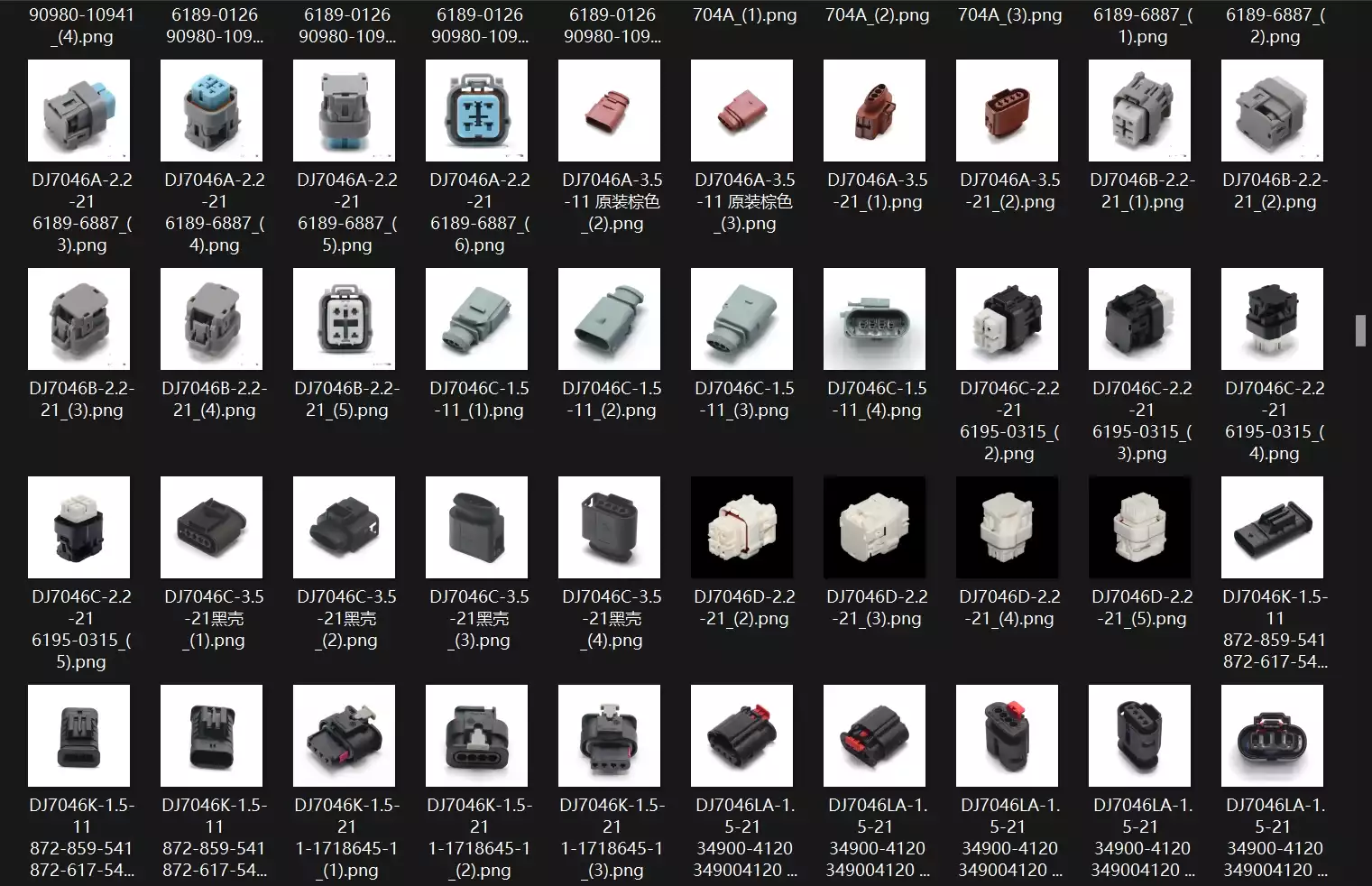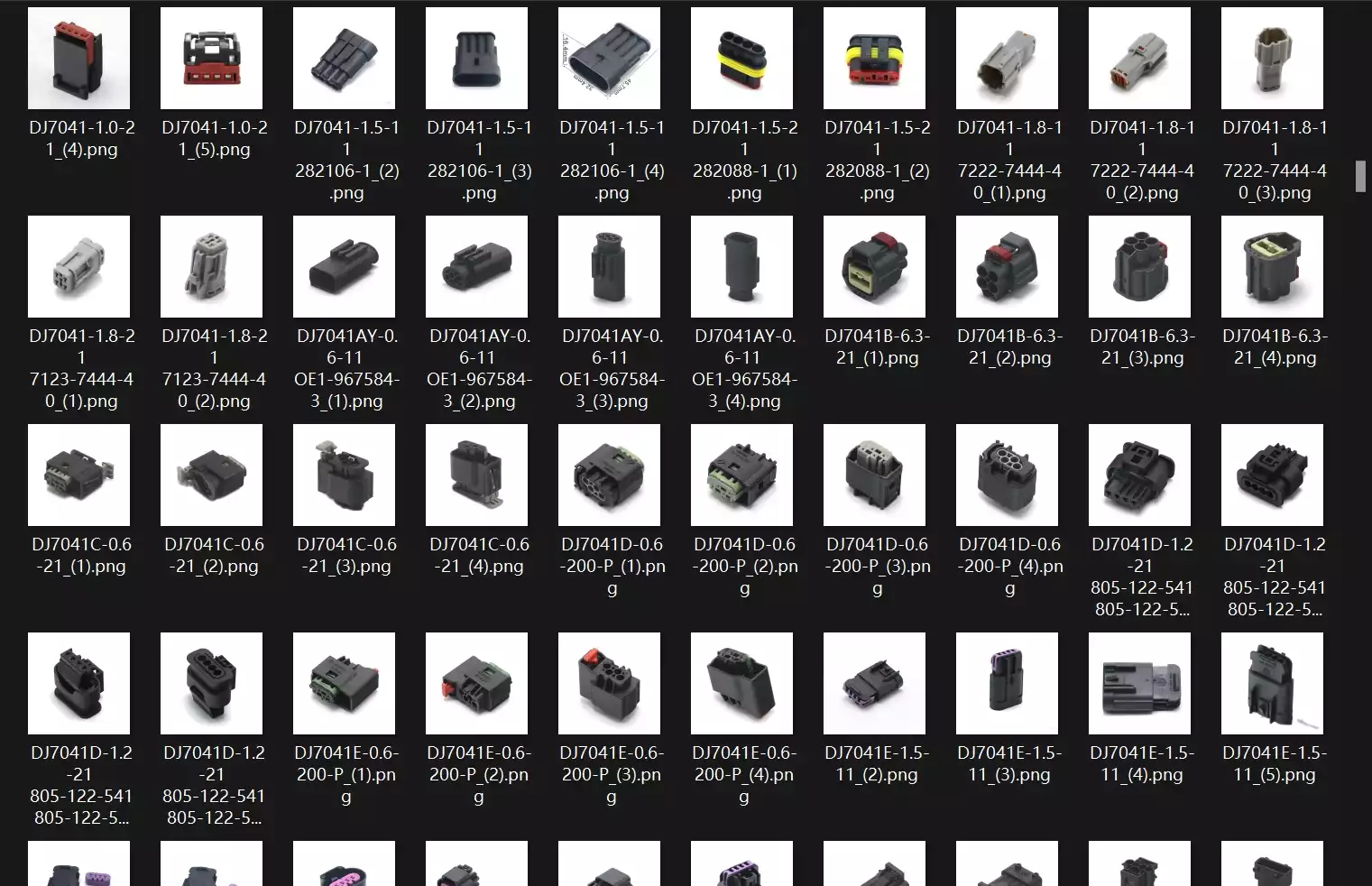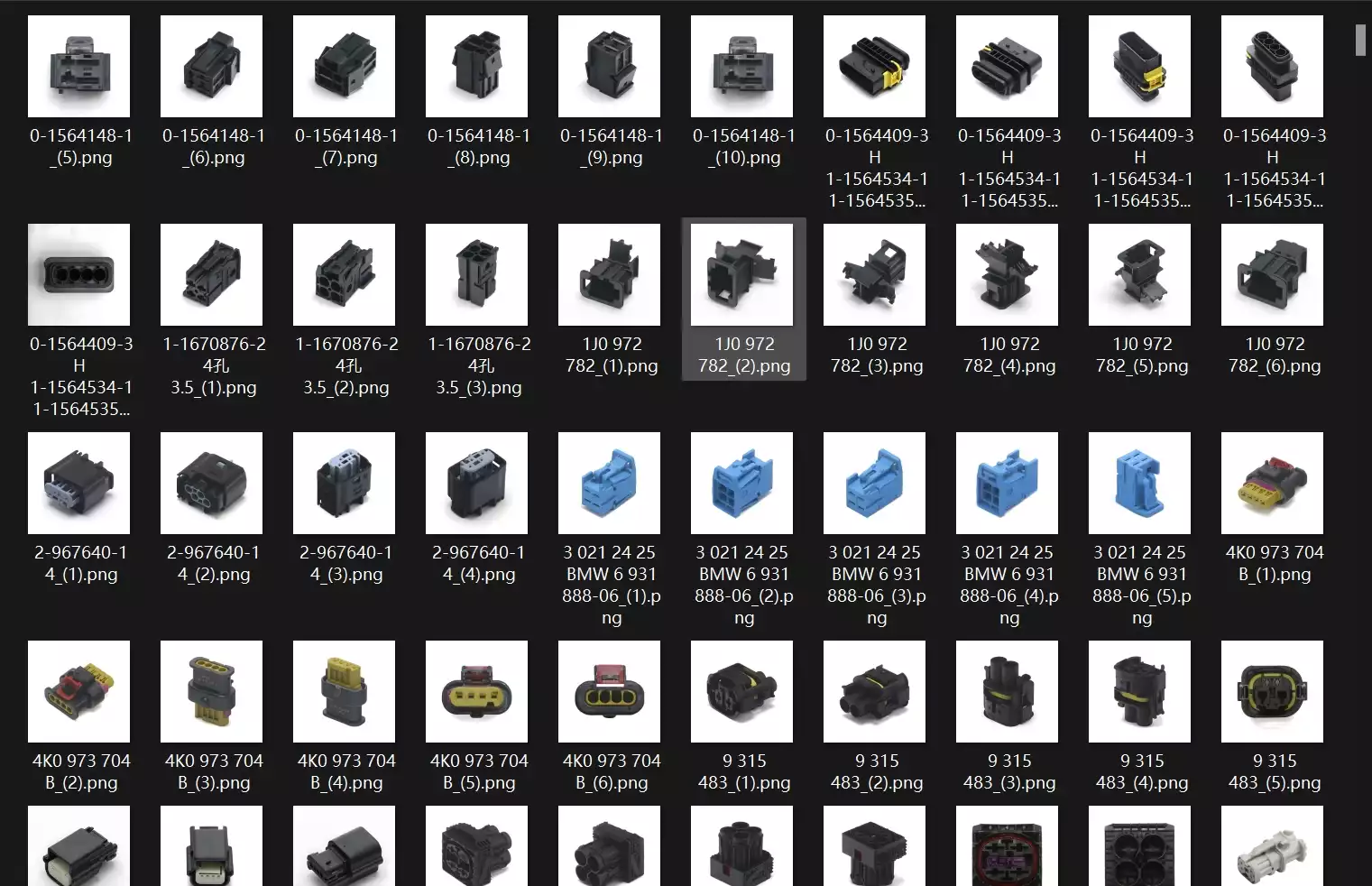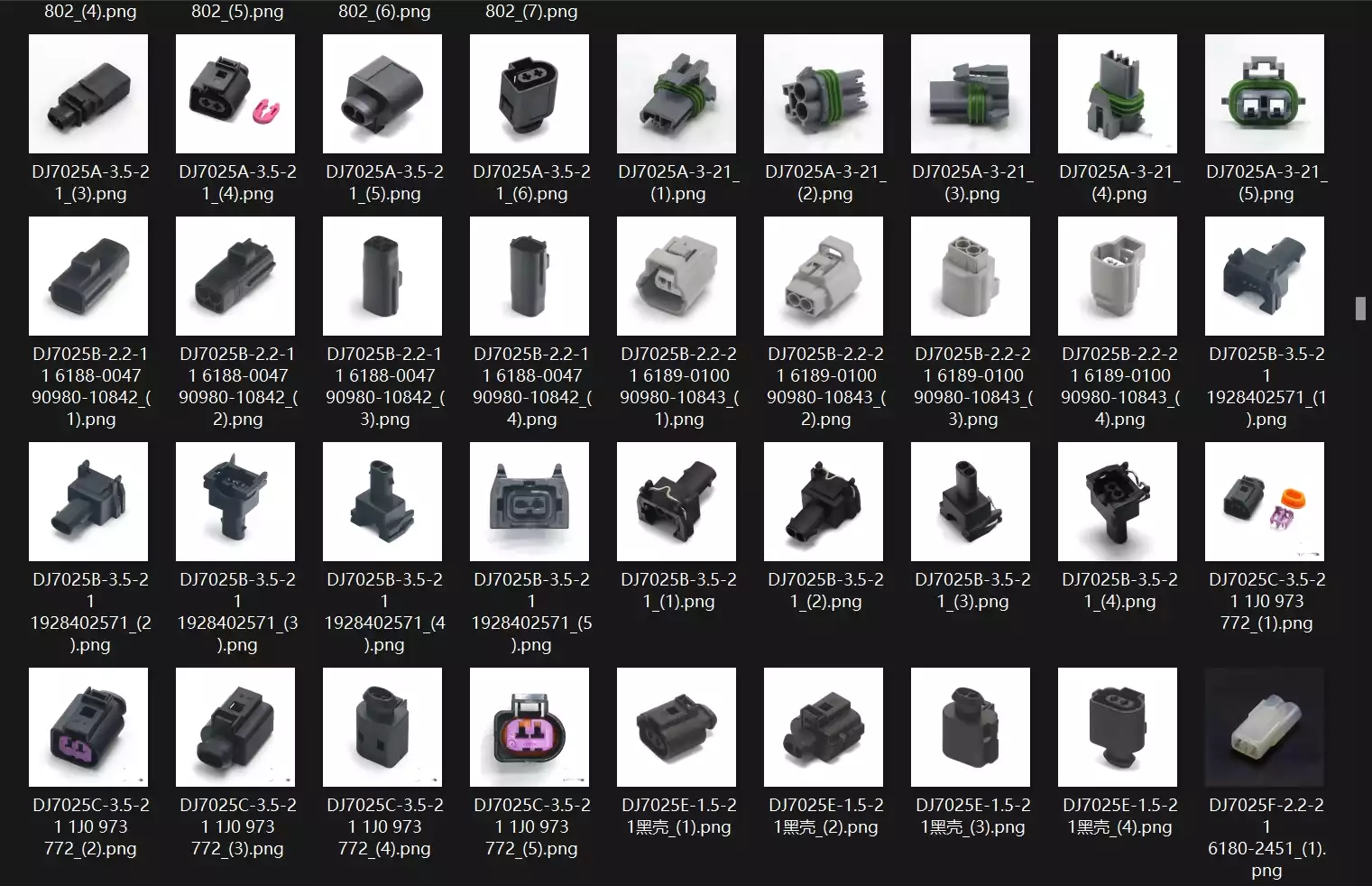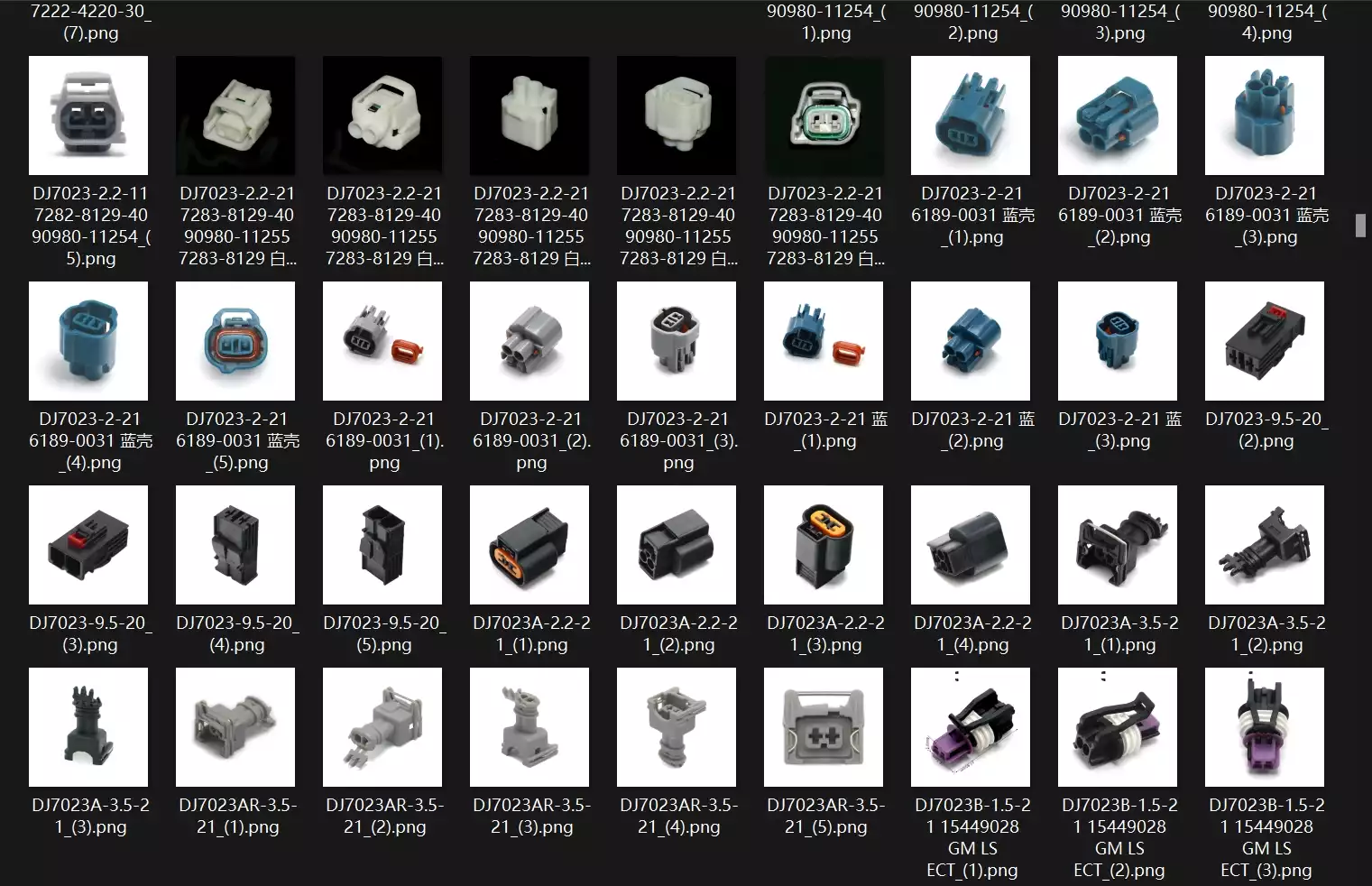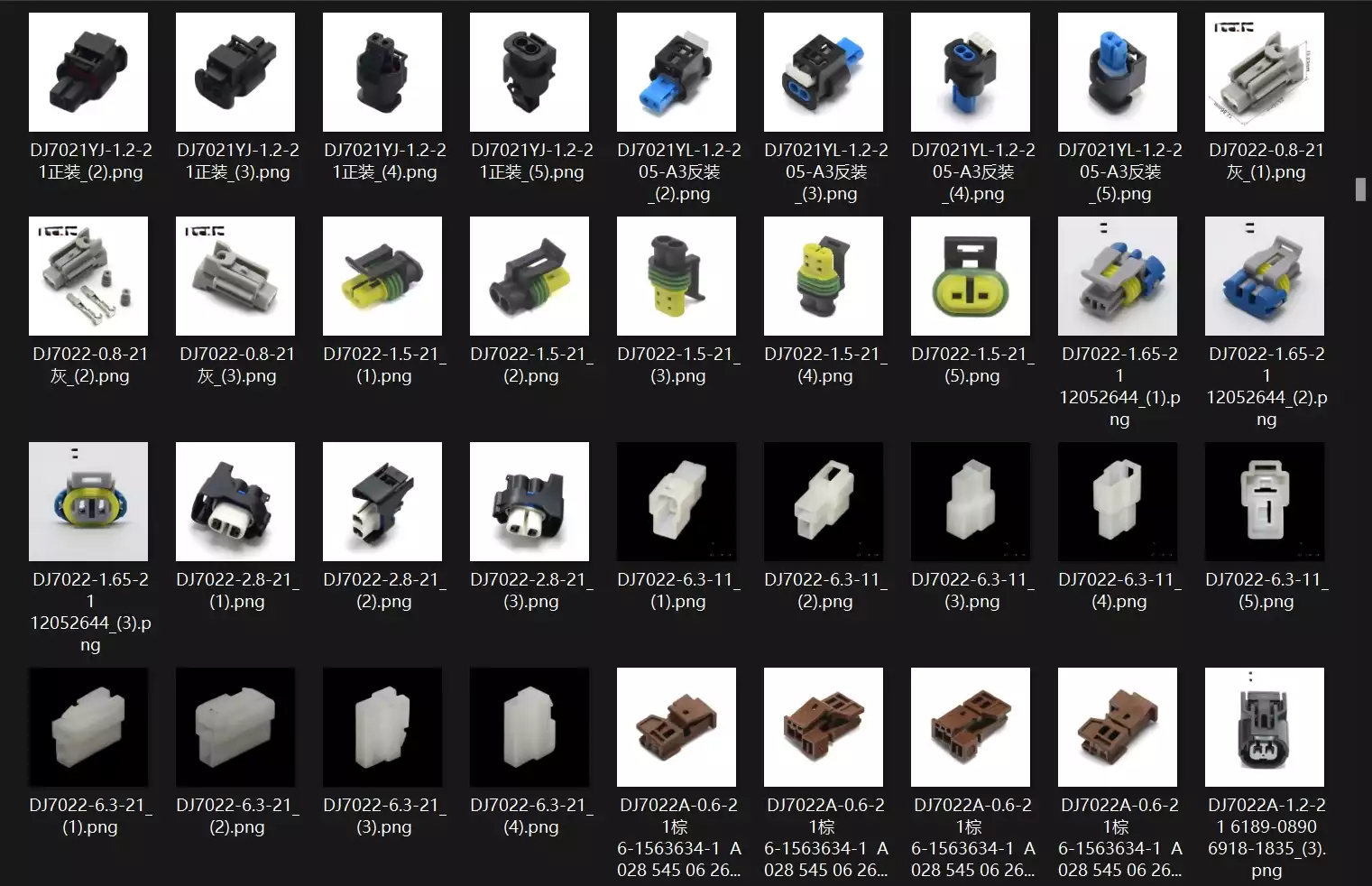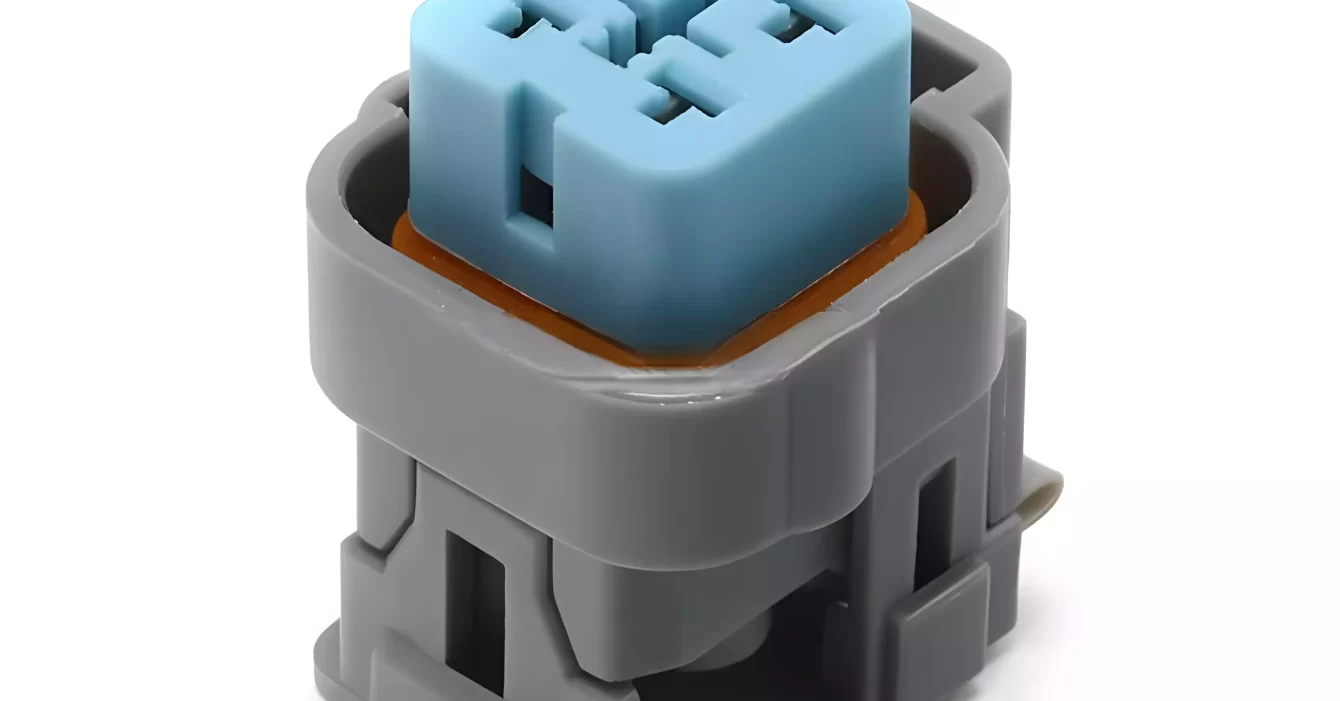
IIIB production-Connector plastic shell
Specializing in the production of automotive connectors. Mold production and development, product R&D and customization, the products involved include connector plastic parts\connector hardware\automotive wiring harness\automotive ties. Support customization, provide processing services, OEM services, and a series of services
Automotive connectors are a component that electronic engineering technicians often come into contact with, and they play a vital role in automotive electronic control systems. An automotive connector is an electrical device used to connect different sensors, actuators, control modules and other components to achieve communication and control between the entire vehicle electronic system by providing functions such as power supply, data and signal transmission.
Automotive connectors are mainly composed of four basic structural components, including contacts, shells (depending on the type), insulators and accessories. Among them, the insulator is also often called the automotive connector base or mounting plate. Its function is to arrange the contacts according to the required position and spacing, and to ensure the insulation performance between the contacts and between the contacts and the shell. In addition, the materials of automotive connectors are mostly engineering plastics and gold-plated copper alloys to ensure good conductivity and durability.
In automobile electronic control systems, connectors mainly play the following roles:
Connecting different components: Connectors provide the possibility of communication and collaboration for various components in the automotive electronic control system, allowing the entire system to work together.
Protect circuits: Automotive connectors can prevent components such as glass relays from being damaged by external substances such as liquids, sand and dust, thereby ensuring the stability of circuit performance.
Increased ease of use: Due to the large number of automotive connectors, they make it easier for technicians to work when disassembling and assembling a car.
Automotive connectors are widely used in power systems, body systems, information control systems, safety systems, vehicle equipment and other fields, and can be subdivided into multiple types according to functions and application scenarios, such as circular connectors, radio frequency connectors, FCP connections connectors and I/O connectors, etc. The main types of these connectors include low-voltage connectors, high-voltage connectors and high-speed connectors, each of which plays a key role in specific application scenarios.
In general, automotive connectors are the "gateway" for building energy and information interaction channels. They are components for current or signal transmission and exchange between electronic system devices. They are also essential basic components in automotive electrical and electronic systems. .

